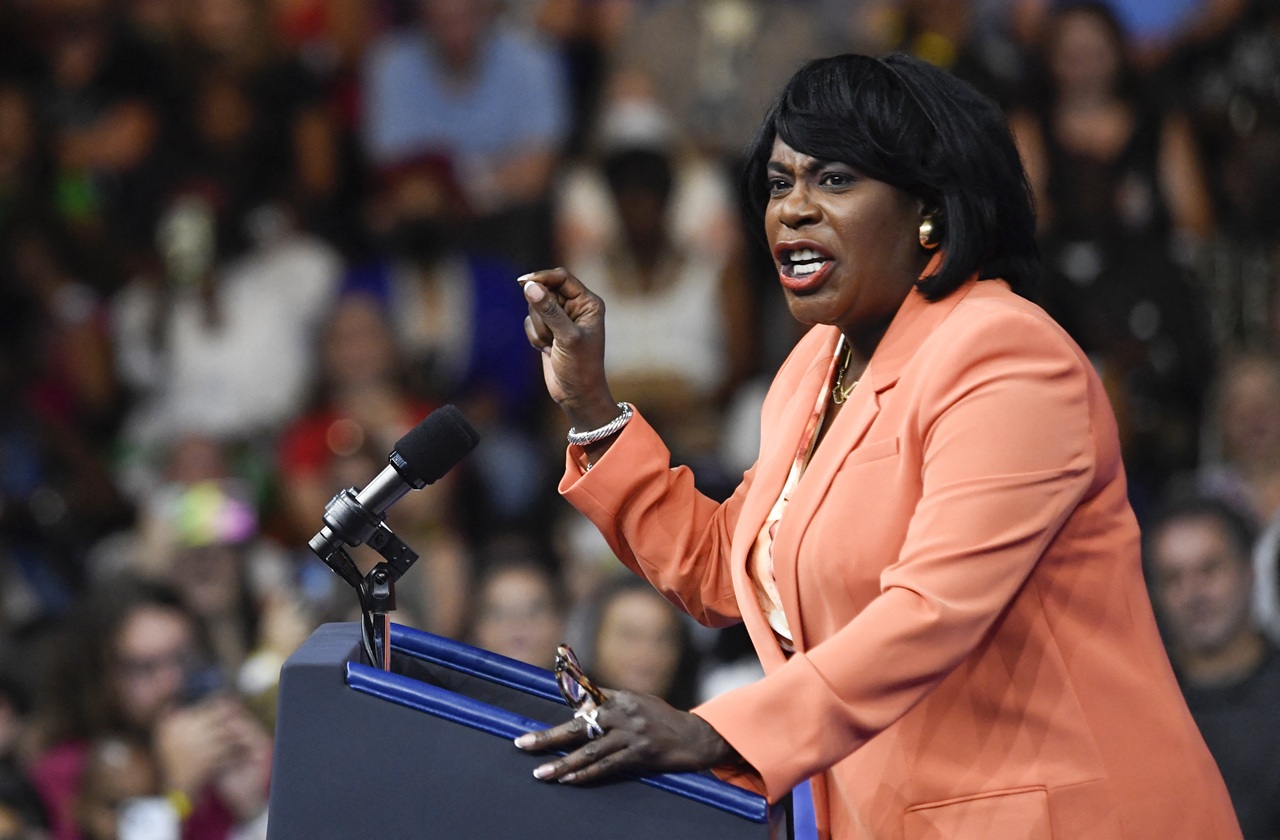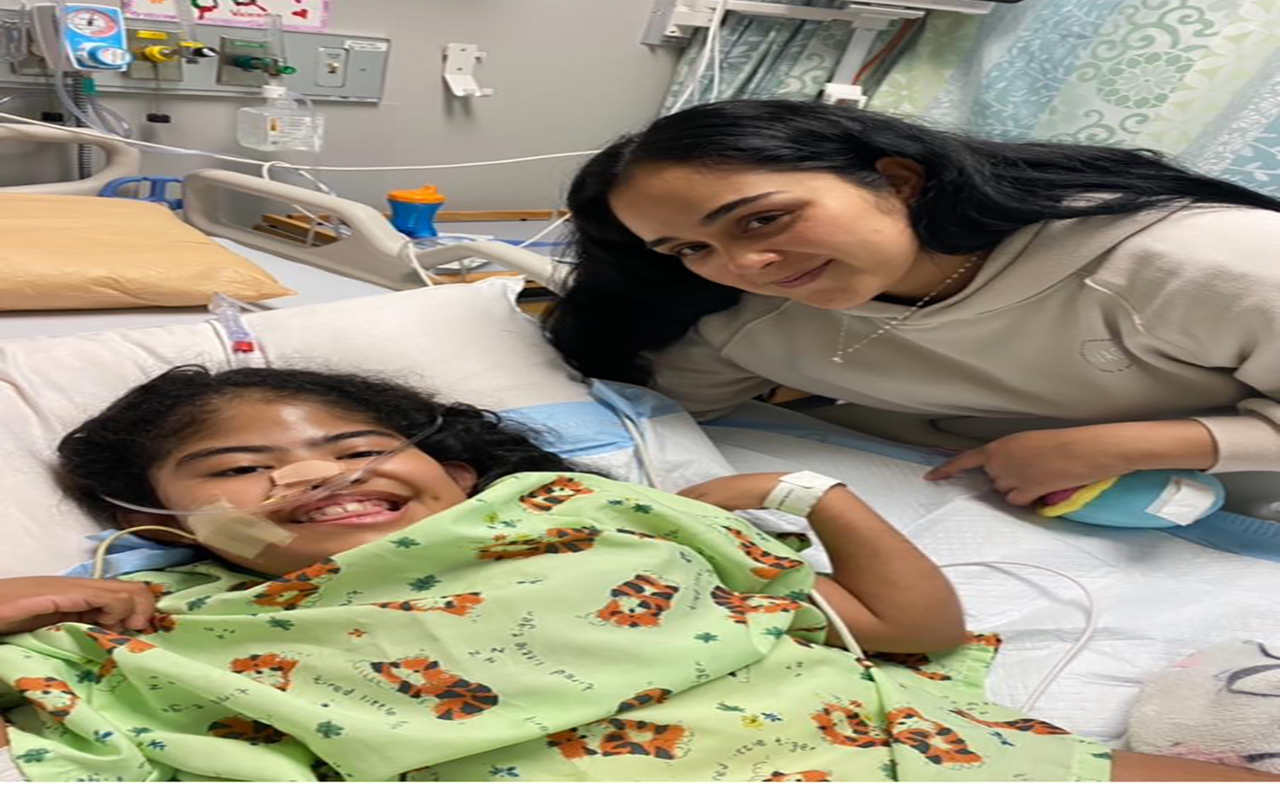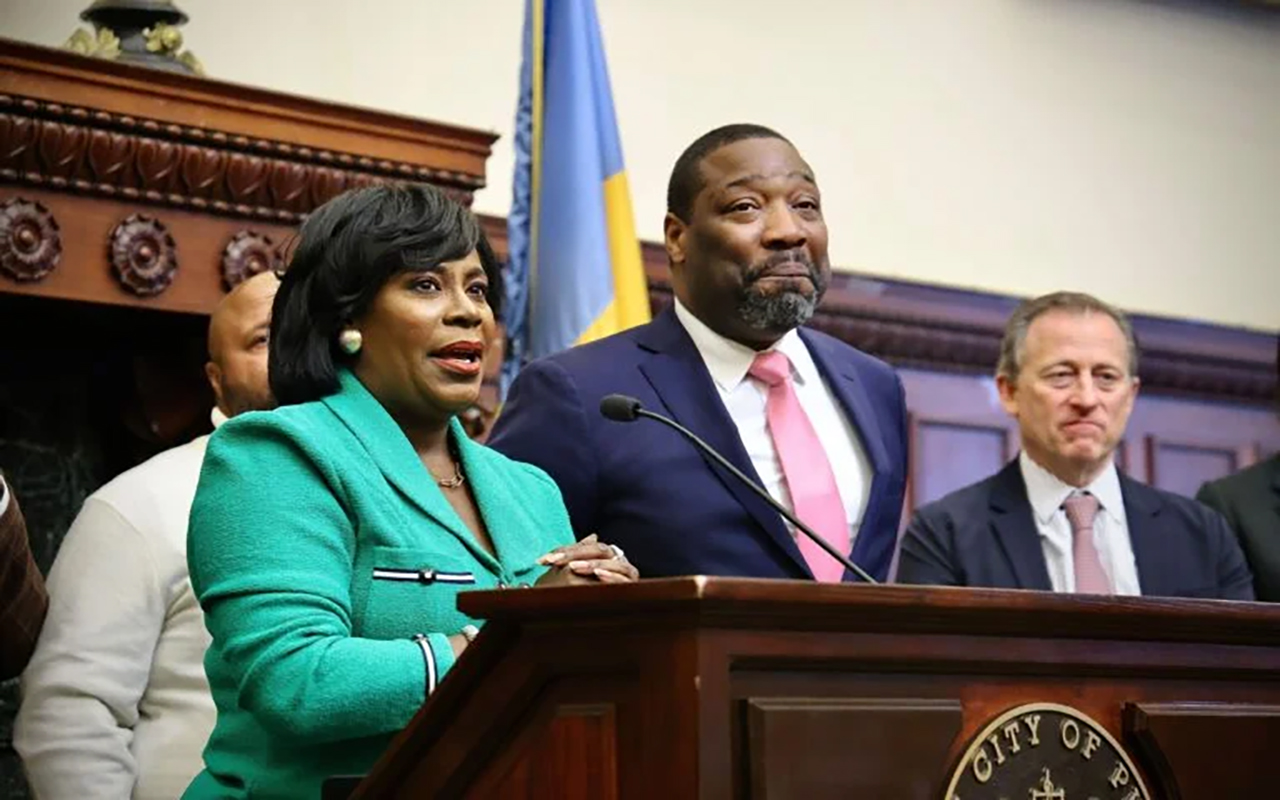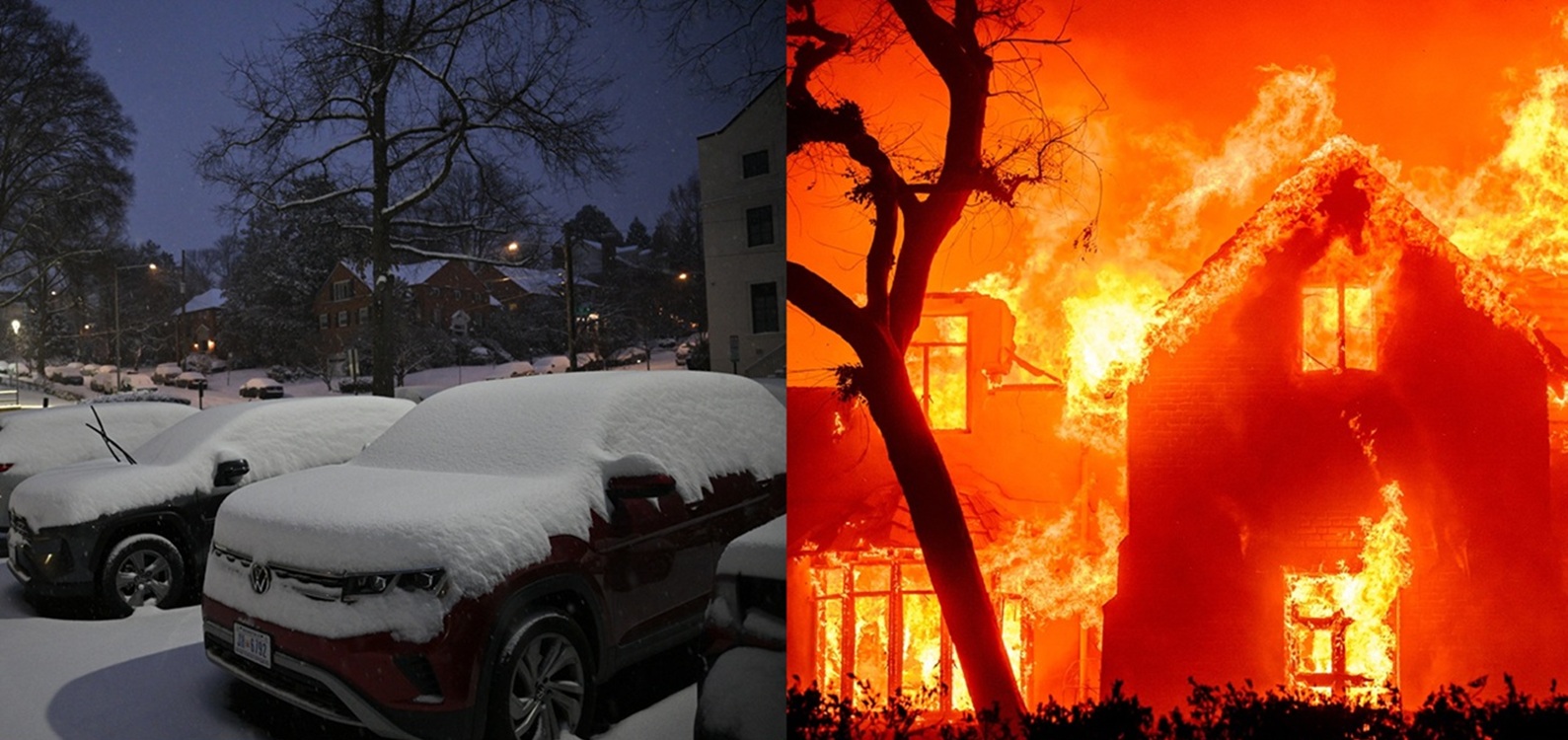
The Philadelphia World Cup: Kenney's plan to unite a city
The city is planning a city-wide soccer tournament where the city's different cultures will be represented on the field. The mission: to unite the immigrant…
It started with an idea.
“Jim Kenney was elected on a Tuesday I think it was and I got an email to go see him that Thursday,” said Bill Salvatore from the Philadelphia Parks and Recreation Department. “It was a very generic email. I didn't know what I was coming down for. Should I wear a suit? The Mayor’s Office doesn’t just email you and asks you to stop by for a visit. ‘No, just come down, it’s casual. He has a lot of ideas.’ And that was that.”
Salvatore is the leadership and organizational development manager for Parks and Rec. He’s been tasked to work alongside the Office of Immigrant Affairs (OIA) to create a city-wide soccer cup. The tournament will feature teams representing the cultures and countries of Philadelphia’s immigrant communities. Think: A “Philadelphia International Cup.”
“That’s just the tentative name for it,” said Salvatore. “We are still working on hammering a lot of details and the name is one of them.”
Mayor Kenney said his hope is the tournament will highlight Philadelphia’s diversity and bring together neighborhoods. It has always been a dream of his, he said.
“The Germans from Cannstatter in the Northeast playing the Mexicans in South Philly playing the Ghanaians of Southwest and so on,” Kenney said. “When you bring people together around one commonality, it’s the foundation for important cultural exchange and understanding that increases tolerance across the city.”

Here’s what they have so far
The tournament’s format will be similar to that of the FIFA World Cup. There will be 32 teams separated into eight groups of four. The top two teams from each group will qualify for the playoff stages which will transition from group of 16, to quarterfinals, to semis and finally a championship game which will be played at Citizen’s Bank Park.
“You should know that we’re still young in the planning process,” said Salvatore. “The first thing I did was set up the format and start working on dates. Seeing if we would be able to get fields for those dates.”
Teams can have up to 25 players on their rosters. They will have to commit to play all the games they are scheduled for. A $100 bond is required to play. This will be refunded after the tournament.
Each registered player will be given a special ID card. Salvatore said they are considering the possibility of gathering player statistics. Both women and men can register to play but they must be at least 18-years old.
“We actually found out that a lot of the groups wanted to field co-ed teams,” said Salvatore. “They wanted to make sure anyone who wanted to play, could.”
The cup is tentatively scheduled for the Fall. Group stages will be played in September and the playoffs throughout October. The final is scheduled to be November 5.
“Playing the final at Citizen’s Bank Park gives you a lot of credibility,” said Salvatore. “Like hey listen, this is going to be a local soccer tournament but look what happens at the end. We could easily make the final at the South Philly supersite which is really nice. It’s a turf field and it’s a stadium but it’s not The Bank.”
Games will be played at various fields owned by the Parks and Rec Department with the possibility of having the playoffs on “supersites” owned by the Philadelphia School District. These are larger capacity venues with synthetic turf fields. The school district has sites in Rhawnhurst, Stenton, Hunting Park, and South Philly.
“We’re also toying around with the idea of playing at local high schools and colleges,” said Salvatore. “But we don’t know that far logistically yet.”
The games will be free and open to the public, including the final at the Bank. The referees will be assigned by college-level officials. Salvatore said he’s aiming for a “top-notch” tournament.
Also planned is a cultural festival to be held on the day of the final. Salvatore says they hope to bring food and music from all the cultures represented at the tournament.
Who’s playing?
So far OIA has held one interest meeting and are planning on holding another one. No date has been set yet for this meeting, but the interest is there they said.
“We approached all kinds of different communities,” said Hani White, deputy director of OIA. “Not only amateur leagues but also nonprofits that are already running schools for soccer. They have multiple countries represented in their groups. We also reached out to the communities themselves. So for example, we approached the African community that has run their own soccer tournament for some time now.”
Many immigrant communities, Hani explained, already have long-running leagues or tournaments set up. Along with the African community, there are also leagues made up of Asian immigrants and Mexican immigrants in South Philly and Northeast.
“When [Salvatore] came to meet with us for the first time, we asked him how many teams he wanted to fill,” said Miriam Enriquez, director of OIA. “He told us 32 and we were like ‘That’s it?’ You are definitely going to have more than that.”
And certainly there were many on the sign-in sheet for the first informational meeting. Bhutan, Argentina, Indonesia, and the Dominican Republic just to name a few of the countries represented.
“We were given a lot of input,” said Enriquez. “We know the interest is out there and a lot of people want to play but it depends a lot on how we schedule this. People have to work. We have to take so many factors into consideration and also get commitment ahead of time.

At the Dominican flag raising at City Hall last month, Enriquez said she was already being told the community was waiting for more details to finalize their team. Their competitiveness was already present.
“They were telling me that they already have a team and that they were going to win,” she said. “It’s that pride that is part of why the Mayor wants to do it. You can celebrate your own country’s pride, but more importantly we want this to be a Philadelphia thing.”
It’s a celebration, she explained, of all the cultures in the city but also unifying them to show a part of the Philadelphia culture.
“Think about what brings people together,” said Enriquez. “It’s sports, it’s food, it’s thing that you can share that every culture has.”
The teams are there
Ana Flores is the director of the Mexican Cultural Center. She explained that the Mayor met with her and other members of the Mexican community to talk about their concerns leading up to him taking office.

“Amongst all the things we talked about, we were surprised to hear about this idea,” she said. “For Mexicans, soccer is the most important sport, period. So when we heard about this, we immediately knew there would be interest.”The Mexican Cultural Center works with the community in South Philadelphia. Flores said there are many independant leagues which are very strong.
“I have to say, when we brought this idea to them, they were all very excited,” said Flores. “I don’t think they fully understand yet what this could mean for the city. They are more interested in the competition. But we definitely believe that this is a great way for our community to be involved. They can participate in something that they know and feel like a part of the city.”
The immigrant communities seem to buy into the initiative. Most say they agree that soccer is a unifier. Almost every interested party cited the sport as the first way immigrants begin to assimilate to new surroundings.
“What is the first thing these guys do, they look for a league to play on,” said Tim Hampson, president of the CASA Soccer League. “It’s just a natural thing for them to look for. They played in their home countries or when they travelled. Some of the best players we have in our league started out as casual players.”
CASA is a non-profit organization which runs four levels of competitive play as well as a women’s division and a futsal league. Futsal is a variation of Soccer played primarily indoors with five-person teams. Hampson considers CASA one of the biggest independant leagues in the country.
“We have players on our league from all over the world,” he said. “Players that just wanted something to do after work or school but eventually you begin to see the team captains building social networks. You’ll see the same happen with these new teams that will be formed. I think it will help these cultural organizations identify leaders in their community that they didn’t even know existed.”
Hampson welcomes the idea of a city-wide tournament and he’s sure many of the national teams created for the cup will come from CASA league.
“We already attract the top talent all over the city,” he said. “For us it’s such a cool opportunity to tell these players ‘Hey, it’s your time to shine. You stand up, you be proud to represent your country.’ It also allows our players to feel like they are a big part of developing the sport in our city.”
Thought pride and competitiveness can go hand in hand with a competition like this, some say it is important to not just focus on the rivalries.
“The point here is, it isn’t just about winning,” said Beto Duec, a member of Argentinos en Philadelphia. “Of course all the teams will want to compete but the goal here is to celebrate a party of immigrants and this is good for all the communities in Philadelphia.”
Duec says there is interest in the Argentinian community to field a team but also to commit to the philosophy of the cup.
“For example, they told us on the last day, the final, there will be a celebration of food and music honoring all of the cultures in the city,” he said. “That is what this city needs. That is what our communities need. For all the immigrants to not feel displaced and for us to realize that we are part of Philadelphia and the culture of Philadelphia.”
There are concerns though. There are many details that have yet to be hammered out. Hampson said the city should be aware how large scale this project will be.
“Really this is going to be a representation of the world scene locally,” he said. “I mean think about that. To be able to pull this off, get it organized, there is a lot of work on the city’s side. I’m really happy that they are doing it, I just hope that they do it the right way.”
Palms Solutions, a community organization in the city which serves the African diaspora, also has experience hosting similar tournaments. Since 2012, they have organized the yearly Philadelphia African Cup of Nations for Peace (PACONP).
“I talked to Salvatore and I told him that this is not an easy task,” said Jean Marie Kouassi, executive director of Palms Solutions. “To bring these people together you have to go languages, religion, and things like that. It’s not just about kicking a ball. And that is the hope right? That you will be able to unite everyone regardless of their origins. My goal is to see how I can help with the experience we have holding PACONP.”
Kouassi said that their event always strives to unite and teaches a theme. It is never just about the games. He said he is excited for the possibilities and he’s sure there is interest from soccer players through his organization. However, he’s also sure the players will want to make sure the tournament has a message of peace.
“I think this is a very good tool to bridge different nations,” said Kouassi. “Soccer has become a centerpiece since the last world cup and I think this is something we should utilize and take advantage of.”











LEAVE A COMMENT: